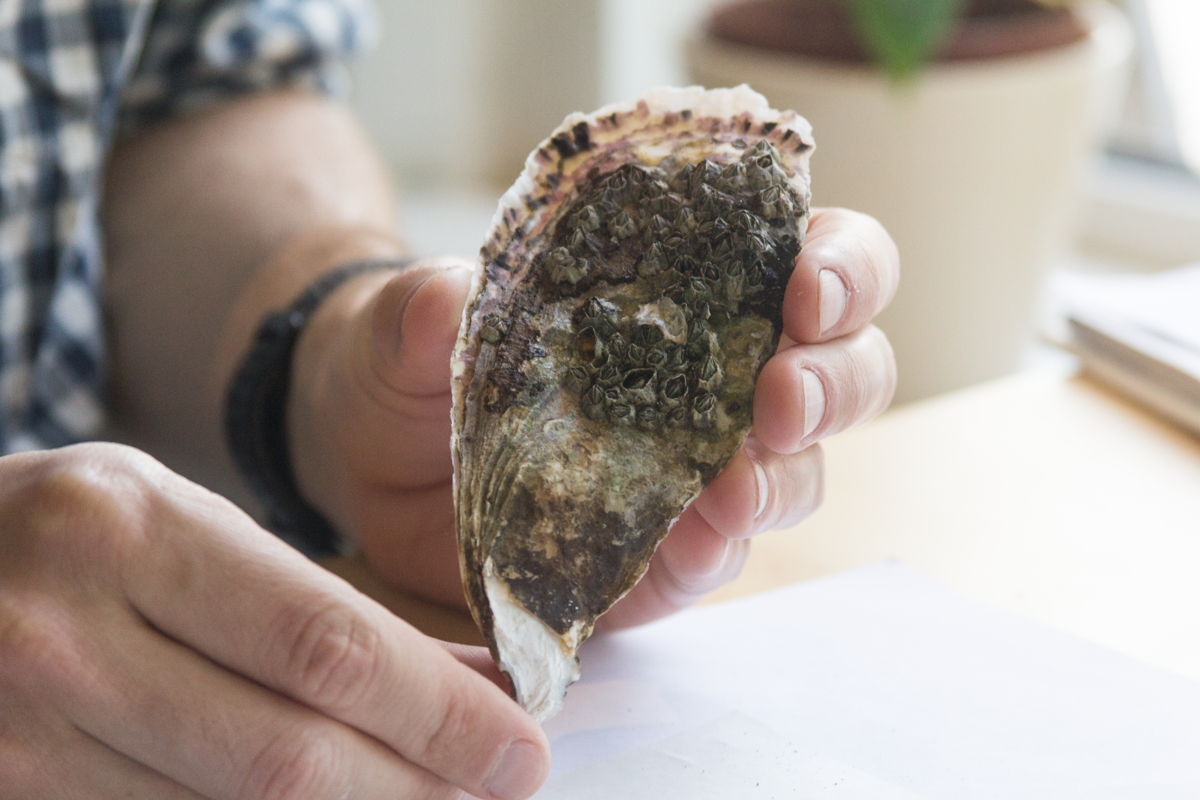
Ground-breaking research on climate reconstruction
Geologist Niels de Winter is one of five promising researchers nominated for the annual Eos Pipette prize. It is the second nomination this week for De Winter, a postdoctoral researcher at the VUB research group AMGC and the University of Utrecht. On Tuesday, he was also nominated for the New Scientist Science Talent 2021 award. De Winter develops innovative methods to reconstruct climate changes on a scale of seasons or even days. De Winter: “The most innovative aspect of my research is the scale at which we can now study past climate. The new methodology allows us to study the effect of climate change on seasons and even weather conditions. We can also measure very local climate conditions and therefore understand much more precisely how and why climate change has different effects in different places on earth. The application of this research goes beyond climate, however, as fossil shells also record other conditions of seawater, telling us more about the marine ecosystem in which they lived. We were have even been able to show that in the distant past, the year had more days, which is important for astronomers studying the Earth-Moon system.”
Niels de Winter is developing techniques to study climate change on a seasonal scale, because the most important variations in our climate occur on this scale. For these reconstructions, he uses chemical and microscopic analyses of fossil shells. Shells record the conditions of their environment, like the rings of a tree. To better understand shell growth, he also farms live cockles, oysters and mussels. His research takes place at the interface of biology, geology and chemistry, and has multidisciplinary applications.
 “I am extremely happy with the nomination. It is a nice appreciation of my work as a researcher and a great opportunity to express my passion for climate,” De Winter says. “As a climate expert, vegan and young scientist, I seize every opportunity to make people aware of their impact on the climate, environment and biodiversity.”
“I am extremely happy with the nomination. It is a nice appreciation of my work as a researcher and a great opportunity to express my passion for climate,” De Winter says. “As a climate expert, vegan and young scientist, I seize every opportunity to make people aware of their impact on the climate, environment and biodiversity.”
De Winter obtained his PhD at the VUB in 2019 with research on techniques for high-resolution climate reconstruction. He published seven of the nine chapters of his PhD as first-author papers in international peer-reviewed journals, and he has a total of 23 publications in five years. His research has been awarded two Early Career Scientist Awards – the Steven Cohen Prize in 2017 and the Outstanding Early Career Scientist Award (EGU, 2020) – and has regularly had media coverage, sometimes worldwide. His postdoctoral research is funded by the FWO and the European Commission (Marie Curie grant, Horizon2020).